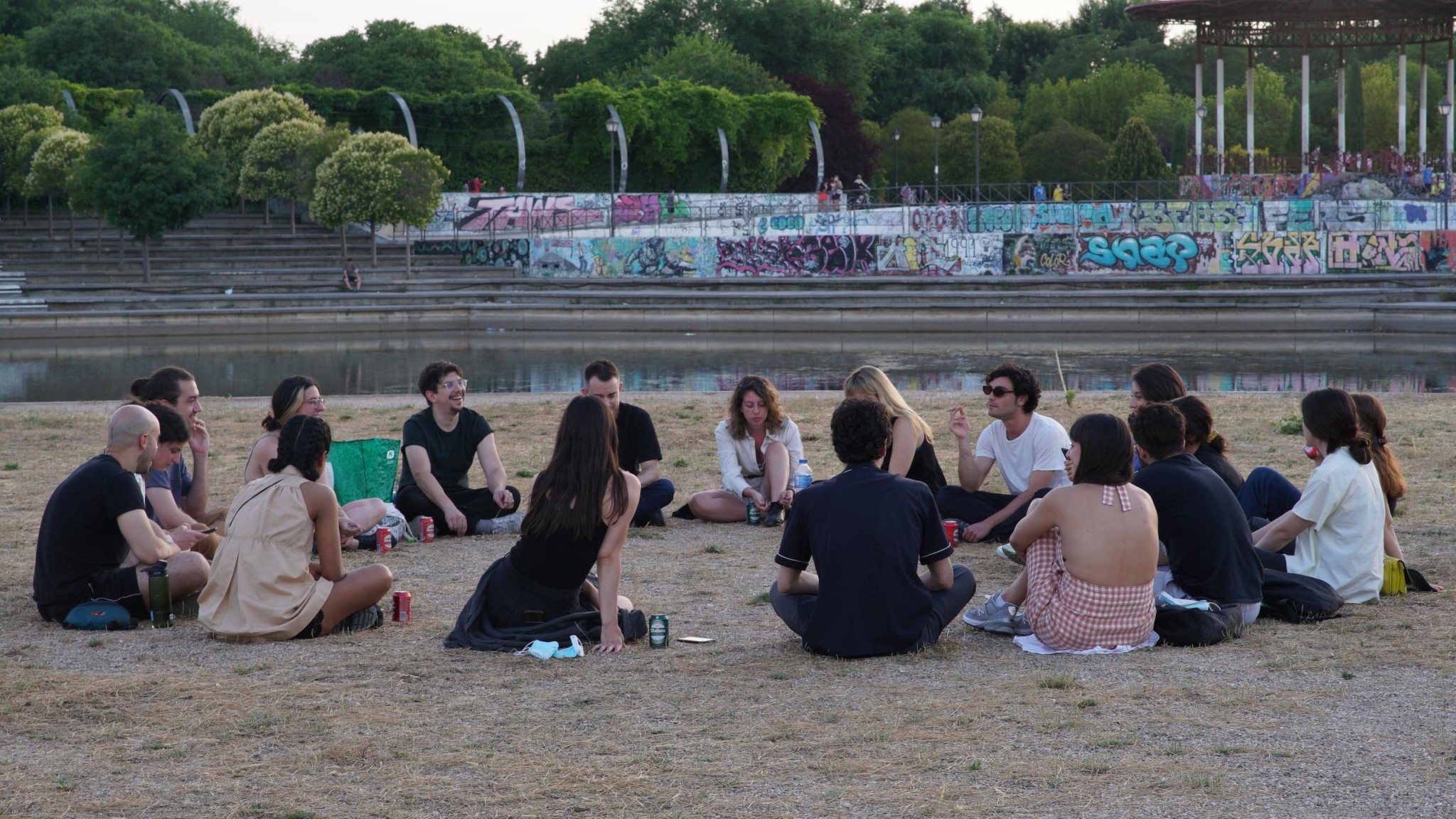After the Future. The ends as Beginnings
Nº of sessions
8 sessions
120 min each
Dates
From November 2020
To December 2020
Time
From 19:00 to 21:00
(CET / CEST)
Language
Spanish

In the face of the increasingly apparent gravity of the environmental and civilizational crisis, new versions of an ancient idea of the "end of the world" are proliferating. The transformation of our species from a simple biological or social agent to a geological force capable of affecting the planetary system and its destiny - a situation that has given rise to the formulation of the controversial concept of "Anthropocene" - produces metaphysical anguish that contrasts with the optimism of the technophilic discourse. This seminar, taking the book There is a World to Come. An Essay on Fears and Ends by Viveiros de Castro and Deborah Danowski aims to analyze the current proliferation of narratives about the end of the world, understanding them as attempts to invent mythology appropriate to the present that orients us in the face of the collapse of the distinction between nature and culture.
Speakers
Uriel Fogué (elii / GCFP)
Ph.D. architect by the UPM (extraordinary prize doctoral thesis course 2014-15; doctoral thesis finalist in the X Iberoamerican Biennial of Architecture and Urbanism, 2016). Professor at the European University of Madrid. Co-directs the architecture office elii, which was part of the Spanish Pavilion at the XV Venice Architecture Biennale (awarded the Golden Lion 2016). He has two works selected for the European Union Prize For Contemporary Architecture Mies Van Der Rohe Award (2015, 2019). His work Yojigen Poketto was selected as one of the 20 visionary domestic spaces of the last 100 years in the exhibition 'Home Stories 100 Years, 20 Visionary Interiors', at the Vitra Design Museum, Weil am Rhein (2020). He has won the First Prize of the Colegio de Arquitectos de Madrid (2017). Apart from that, he has been recognized on 5 other occasions with the Madrid College of Architects Award (2018, 2017, 2016, 2013, 2011, 2006). He obtained the FAD Award (Opinion - 2005) and was a finalist for the same (2018), among several other recognitions. Apart from that, Uriel Fogué co-directs the Gabinete de Crisis de Ficciones Políticas. He is co-author of the book: What is Home Withour a Mother (HIAP - MataderoMadrid, 2015), awarded at the XIII Bienal Española de Arquitectura y Urbanismo 2015; co-editor of the book: Planos de intersección: materiales para un diálogo entre filosofía y arquitectura (Lampreave, 2011); and co-editor of the publication UHF, included in the Archivo de Creadores de Madrid.
Alejandro Galliano
Studied at the Faculty of Philosophy and Letters of the University of Buenos Aires. He teaches history of political ideas at that university and collaborates in various media as a cultural critic, focusing on the relationship between culture, technology and capitalism. He is the author of Los dueños del futuro. Vida y obra, secretos y mentiras de los empresarios del siglo XXI (Planeta, 2017, together with Hernán Vanoli) and ¿Por qué el capitalismo puede soñar y nosotros no? Breve manual de las ideas de izquierda para pensar el futuro (Siglo XXI, 2020).
Gabriel Alonso
Architect and artist, trained between ETSAM (Madrid), Technische Universität (Berlin), and Columbia University at the MS-CCCP, where he graduated with honors with his research thesis An Archaeology of Containment thanks to a LaCaixa Postgraduate scholarship. Founder of the Institute of Postnatural Studies, he currently directs the seminar After Nature: Postnature and Contemporary Creation, a platform for research and debate from which to discuss new approaches to artistic practice through political ecology, post-natural aesthetics, and new ethics of creation that contribute to the definitive dissolution of the nature-culture binomial. His work has been exhibited in different galleries and international exhibitions, such as Eco-visionaries 2019 at Matadero (Madrid), Petra at the Archaeological Museum of Mahón 2019 (Menorca), John Doe Gallery 2018 (New York), IIAF 2018 (New York), Poor Media Leuven 2016 (Belgium), Espacio Las Aguas 2015 (Madrid), Neuköln Art Festival 2013 (Berlin) among others. He has been an assistant professor at Barnard College of Columbia University (Nyc) and in the Master in Advanced Architecture at ETSAM, and has given several lectures in different international institutions, museums, and universities. In 2013 he created Paper / Architectural Histamine, a platform for contemporary thought, from where he edits several publications, conceived as tools to explore new ideas around the architectural experience. In 2015, he received the FAD Award for Thought and Criticism for his periodicals Desert, and in 2016, he was awarded one of the prestigious Graham Foundation for the Fine Arts Grants.
Lucrecia Masson
Transdisciplinary and with impurity as a principle, she transits the fields of art, theory, and activism. Writing, research, performance, or teaching are some of the forms that her work takes, from anti-racist, transfeminist, bodily, and sexual dissidence positions. She studied the Independent Studies Program -PEI (MACBA-UAB) in 2014-2015 and is currently a Ph.D. candidate in philosophy with a thesis on ruminants, body, and nature. She is part of the Colectivo Ayllu with whom she coordinates the Programa Orientado a Prácticas Subalternas -POPS and the Grupo Latinoamericano de Estudios Formación y Acción Feminista -GLEFAS.
aliwen
She is a critic, independent curator, teacher, and researcher in the fields of art, anarchy, decolonialism, and sexualities. Mapuche warriache (from the city), champurria (mestiza) and epu püllü (two spirits). Activist for human rights, especially those of the LGTBIAK+ community and people living with HIV/AIDS. She was chosen in 2020 as a Monbukagakusho scholar of the Japanese state to study a postgraduate degree in visual arts curatorship and transculturalism at Tokyo University of the Arts. She currently collaborates with media such as A*Desk (Barcelona), Artishock (Santiago de Chile), and Terremoto (Mexico City).





